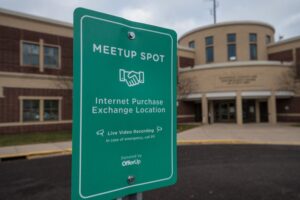Last week, at the urging of President Biden, Major League Baseball announced it had moved the All-Star Game out of Atlanta in protest of Georgia’s voting-reform legislation. The divisive decision will cost the predominantly black city is estimated at $100 million. Coca-Cola and Delta Airlines, two corporations that had previously expressed support for this legislation, reversed course and announced their opposition. United Airlines is the latest convert to the cause.
On the surface, the actions by these organizations are difficult to understand given the large number of prospective customers that are likely to take issue with their policy positions. More than 74 million voters supported the non-woke candidate, Donald Trump in the 2020 presidential election. As such, no profit-maximizing business could realistically risk alienating such a large group of customers. To understand the actions of these corporations, it is necessary to recognize that actions no profit-maximizing business could take when acting alone may be sustainable as part of a cartel.
When all or virtually all businesses in a market adopt the same policy position, consumers are unable to voice their dissatisfaction by voting with their feet and patronizing a competitor that offers a similar product or service. Unfortunately, in this setting, boycotts are of limited effectiveness because customers have nowhere else to turn.
The Underlying Economics
The rationality axiom in economics states economic agents will normally act in their own best interest. Consumers allocate their scarce dollars to goods and services that maximize their utility or satisfaction. To maximize their profitability, businesses make decisions on pricing, product and service quality, investment, and public policy positions. A company can state for the record that it is acting on its principles, but it is profits rather than principles where we should look to first when attempting to understand corporate behavior.
It’s difficult to understand MLB’s “principled opposition” to the voting-reform legislation in Georgia when it seemingly has no reservations in dealing with China whose election results are dictated by the Chinese Communist Party. Nor is there any credible basis to equate a requirement for voter IDs in Georgia with the poll taxes and literacy tests of yesteryear. The only reason to oppose voter IDs is to allow unqualified voters to participate in an election.
When combined with an open-borders policy the perfect storm is upon us. To further argue that voter IDs are discriminatory against minorities is itself discriminatory, suggesting minorities are intellectually incapable of securing proper identification that can be easily established by simply presenting a utility bill with the prospective voter’s name on it.
So how can we reconcile the actions of large corporations in publicly denouncing the Georgia voting-reform legislation and the risk of alienating such a huge segment of present and potential customers? The answer lies in recognizing that collective action taken by corporations as an industry group can be sustainable even when such actions would not be sustainable if these companies were to act unilaterally.
The Enforcement Arm
Indeed, Major League Baseball does not stand alone among professional sports leagues in supporting woke policy positions. It has willing cohorts in both the NBA and the NFL. Delta, American, and United Airlines stand together as do technology firms that include Amazon, Apple, Facebook, and Google. Absent this unified position, a single company that evinced a woke policy position would expect to lose customers to its competitors that would adopt more neutral policy positions. When companies that compete in the same market adopt uniform policy positions, however, there is nowhere for customers to turn unless they are willing to forego their purchases altogether.
These efforts are further sustained by the complicity of tech companies in censoring material deemed harmful to the leftist cause. Defect from the woke cartel and numerous tech companies will come hunting for you. Because “Big Tech” companies act as the de facto enforcement arm of the woke cartel, there is the ability to inflict significant commercial damage.
Perhaps the most well-known cartel is Organization for Petroleum Exporting Countries. By allocating production quotas to its member countries to sustain market prices and maximize profits for the cartel as a whole, OPEC effectively controls the price of oil. By limiting supply, OPEC facilitates monopolistic outcomes rather than the competitive outcomes that would otherwise be expected in a market with a large number of firms that behave non-cooperatively.
It’s for this reason cartels and price-fixing generally constitute per se violations of the antitrust laws — activities considered so pernicious to the competitive process and consumer welfare that the government need only prove that they occurred to establish the offense (regardless of actual harm).
Not simply limited to Middle Eastern oil, cartels have also arisen in markets for diamonds, fertilizers, vitamins, and, of course, illicit drugs. Acting collectively as a coordinated group, the industry can sustain prices that it would not be able to sustain if individual firms that comprise that industry acted unilaterally. What is now quite evident is that these coordinated actions can transcend pricing decisions to apply to woke public policy positions as well.
Finding the Weakness of Cartels
The Achilles heel of cartels is that they tend to sow the seeds of their own destruction, often breaking down over time absent a mechanism to discipline the members of the cartel ensuring they adhere to the agreement. There remains a strong incentive for each individual company in the cartel to expand its output beyond its designated quota to take advantage of the artificially high price. In other words, each company acting unilaterally has strong incentives to cheat on the cartel agreement. Should this occur, the cartel breaks down and prices tend to fall toward more competitive levels to the benefit of consumers. What explains why this same phenomenon does not occur in cartels that fix public policies?
In the context of woke policy positions, a defection from the cartel would take the form of individual corporations adopting more neutral policy positions, in turn allowing consumers to vote with their wallets, patronizing some companies over others because they prefer another company’s policy positions. This may be problematic in the current environment, however, given that the largest tech companies essentially comprise a cartel of their own and can readily reward their followers or punishes their defectors through the strategic use of social media. This particular reality tends to bolster the stability of the woke cartel when it would otherwise be expected to break down. Corporations may prefer positive advertisement, but they shudder at the prospect of negative advertisement.
A growing number of corporations seemingly believe that it is in their financial best interest to adopt woke public policy positions although nearly half the voters in the last presidential election supported Donald Trump. This is confounding, at least on the surface. In actuality, the relevant question is not whether these corporations can afford to adopt woke policy positions, but whether they can afford not to with America’s biggest tech companies supplying the enforcement muscle.
Control the information and you control the people which is why all autocratic regimes begin with the suppression of free speech. If you want to break the woke cartel, you first have to eliminate its enforcement arm in the form of Big Tech’s control over information. The first indication that the U.S. Supreme Court may take up this issue came this week when Justice Thomas intimated that monopolistic social-media platforms be regulated as common carriers. As common carriers, these companies would carry the messages but no longer control the messaging. The neutrality of these platforms is critical to the free flow of information that is the lifeblood of any properly functioning democracy.






